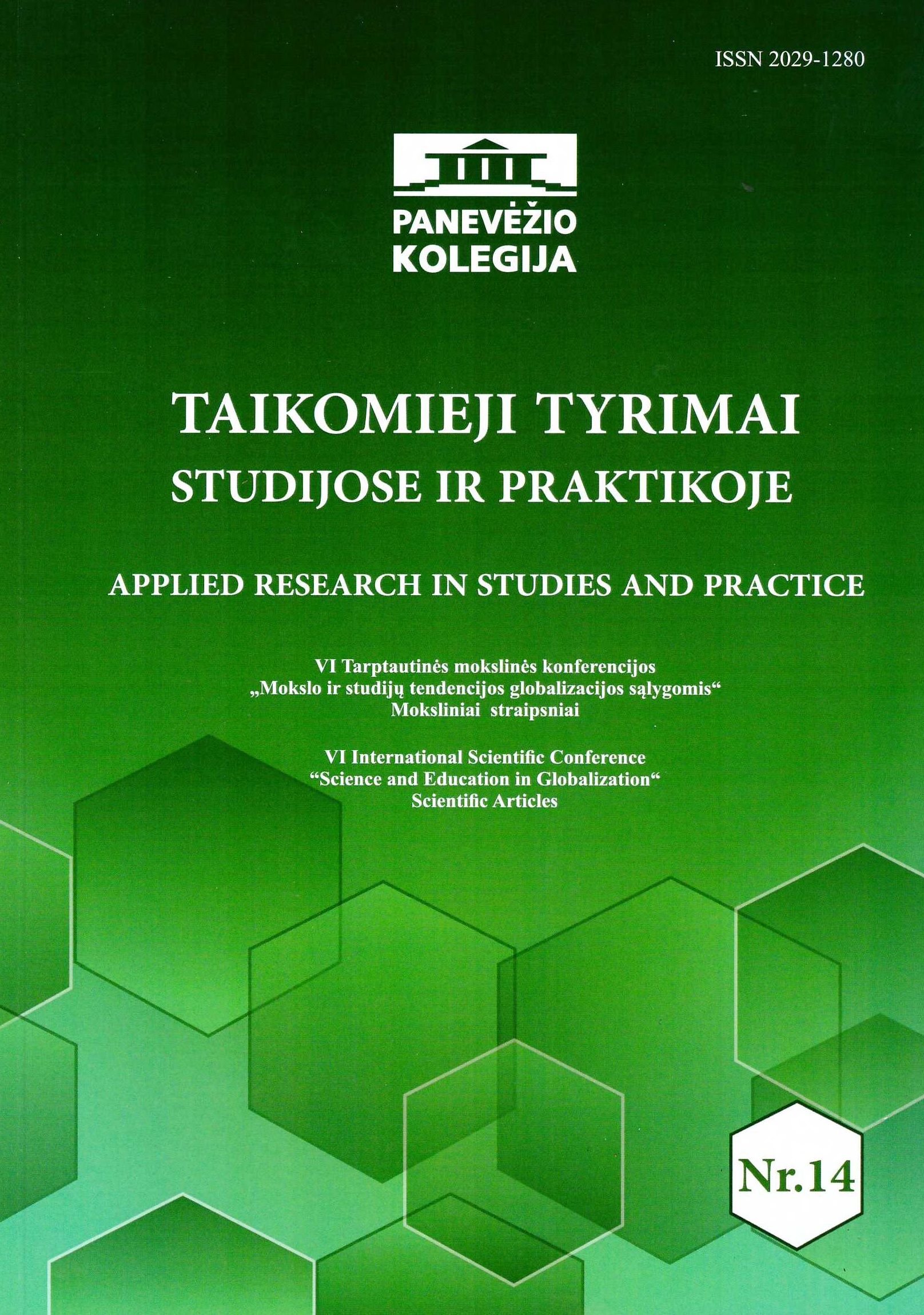JUDRIEJI ŽAIDIMAI VAIKŲ LOPŠELYJE-DARŽELYJE: REALIJOS IR PERSPEKTYVOS
ACTIVE GAMES IN THE KINDERGARTEN: REALITIES AND PERSPECTIVES
Author(s): Lilija KryževičienėSubject(s): Education
Published by: Panevėžio kolegija
Keywords: physical activity; mobile games; pre-school; pre-primary education;
Summary/Abstract: Scientific researches and practice in the institutions of pre-school education show that a game is the most reasonable and obtainable way of education for the child. Nevertheless that nowadays many books are published about games, however, their content is based mainly on descriptions and beautiful illustrations. The lack of methodology application for games, in order to personalize and differentiate tasks for children, to make it applicable in various situations, is felt. Therefore, it was decided to investigate teachers’ ability to apply active games in children’s physical activities and their choice of different methods, which lead to successful fulfillment of educational tasks.The aim is to review realities and perspectives of active games for children in the kindergarten.Objectives:• To discuss the importance of active games in education of children’s physical abilities in the kindergarten.• To reveal the ability of teachers to adjust active games in physical activities.Conclusions:• The analysis of literature sources revealed that the big variety of active games are used, however, the lack of deeper analysis of methodical literature and advices how to apply active games in order to educate integral personality are felt. Active games is one of the most fundamental and attractive educating ways for children, which helps to develop their motility, helps to improve basic motion skills, trains important physical features and with the help of the physical exertion stimulates the whole organism and improves health. • The methodology of active games during the whole process of education in the kindergarten almost does not change. Teachers do not pay adequate attention of application peculiarities of active games according to the age of children, in other words, they are used to organize active games, in order to let children choose the place of game, create movements for themselves. In the pre-school educational process, roles are still given by the teacher during the process of explanation rules. This does not educate self-sufficiency, self-expression and self-confidence of children. These key factors are very important in nowadays society.
Journal: Taikomieji tyrimai studijose ir praktikoje
- Issue Year: 14/2018
- Issue No: 1
- Page Range: 74-79
- Page Count: 6
- Language: Lithuanian

